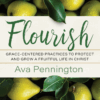Hi Everyone, it’s Judith Couchman. My assignment for this year focuses on blogging about writing: technique; practical pointers, encouragement, and such. I hope it helps you.
The humorist Mark Twain once quipped, “The difference between the right word and the almost right word is the difference between lightning and a lightning bug.”
When you write a first draft, it’s common practice to employ any word that comes to mind. Just get it down. But stunning writing emerges when you rewrite. And with every page turn, rewriting focuses on the smallest elements of a manuscript: the words. As you examine your work-in-progress, ask two simple questions about the words.
1. The precise word. Did you select a precise word? In Through the Looking Glass, an arrogant Egg confidently shared his word philosophy.
“When I use a word,” Humpty Dumpty said in rather a scornful tone, “it means just what I choose it to mean — neither more nor less.”
“The question is,” said Alice, “whether you can make words mean so many different things.”
“The question is,” said Humpty Dumpty, “which is to be master — that’s all.”
Humpty Dumpty reminds writers to master the words, not vice versa.

In light of the Egg’s advice, review your words for precision. Consider this sentence: Anthony leapt out of the car. The verb “leapt” draws a precise image. But what about “car?” If you asked readers what they envisioned as the car, you’d receive a list of varied makes, models, and colors. But if Anthony burst from a crimson Fiat, readers conjure a word picture closer to what’s in your mind’s eye. They enjoy the vivid detail. But don’t overdo it. If Anthony jumps from a crimson, late-model, battered-but-still enviable, foreign Fiat, please read the next point. Precision and conciseness work together.
2. The concise word. Did you write concisely? Review each sentence for word clutter. What words can you cut to create clarity and sustain interest? It’s possible to write less and say more.
Allegedly, during a meal at Luchow’s in New York, Ernest Hemingway boasted to writer friends he could create a six-word novel. The writers balked and bet Hemingway $10 he couldn’t do it. They underestimated the man who changed the trajectory of American writing with his crisp style.
Hemingway wrote: For sale. Baby shoes. Never worn. His friends paid up without comment.
In the classic work, On Writing Well, the late William Zinsser explained the essence of writing concisely. He wrote: “The secret of good writing [strips] every sentence to its cleanest components. Every word that serves no function, every long word that could be a short word, every adverb that carries the same meaning that’s already in the verb . . . these are the thousand and one adulterants that weaken the strength of a sentence.”
Even if you’ve published for years, it’s still wise to check the words. Offer readers the best words you can discover.

Judith Couchman is a CAN member, the author of more than 42 works, and a writing coach. She’s working on the book, How to Keep Writing & Loving It.

